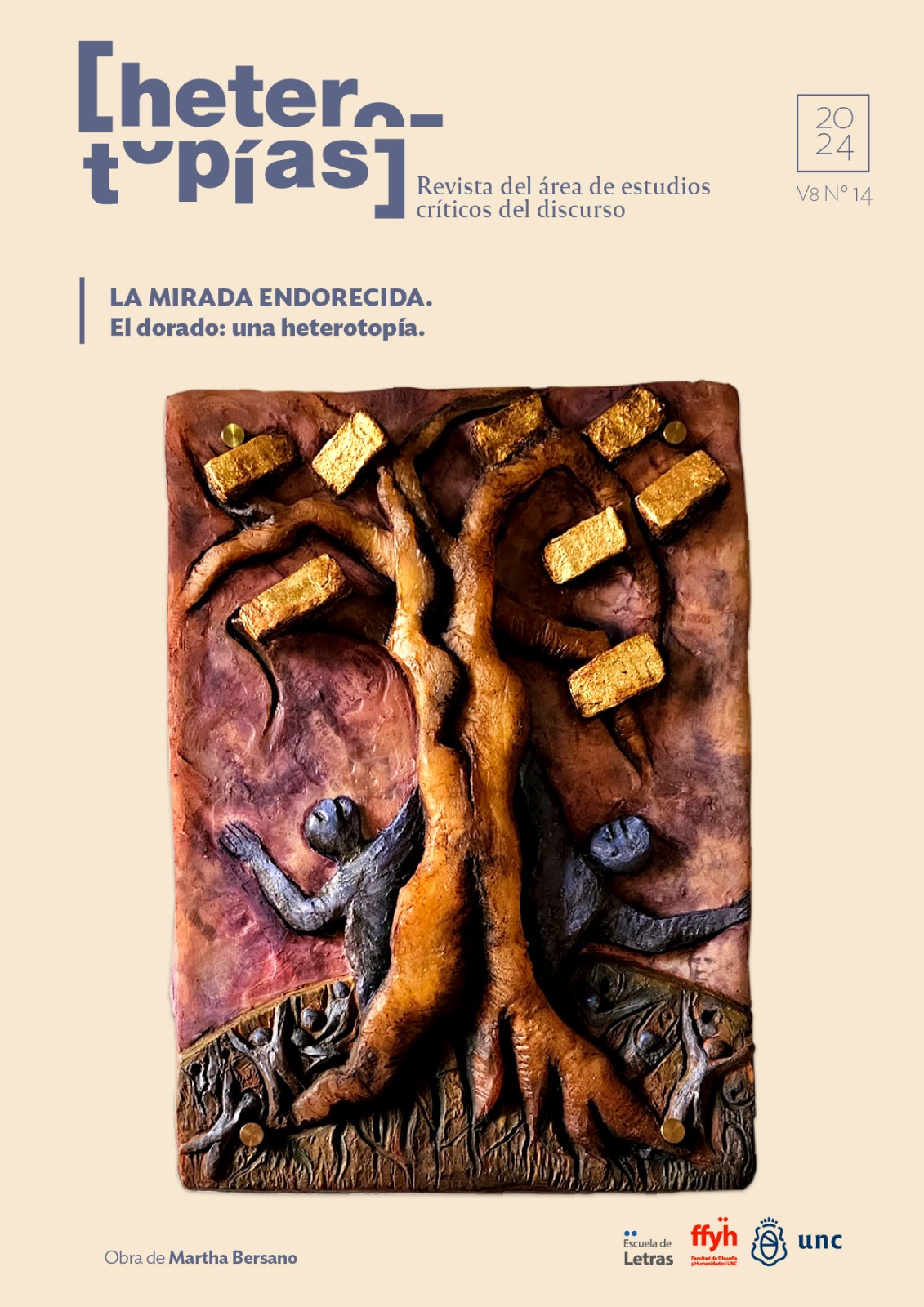
Heterotopías is a virtual journal founded in 2018 that publishes in the Open Knowledge Journal web in Universidad Nacional de Córdoba. It was designed by the Critical Discourse Studies Department from Humanities and Philosophy School as a biannual publication meant to be a common place to spread theoretical work and field experiences related to critical analysis and the understanding of the discursive dimension of cultural and social phenomena, in Foucault’s words, ‘inside a set of relations that delineates sites which are irreducible to one another and absolutely not superimposable on one another’. From an interdisciplinary perspesctive, Heterotopías aims to gather critical study productions for discoursive refutation of the site we live in.
Its main purpose is to be a platform for publishing scientific textual productions and supporting academic work on this area of study, considering the diversity of approaches and the necessary integration of different disciplines.
Two editors work on each issue and select the contributions to be published. Submissions are open to anyone interested in this field of study, which favors participation, especially, from faculty, graduates and students, as well as researchers from other academic institutions and other countries, depending on each issue’s characteristics.
Regarding its structure, the journal is organized in biannual issues revolving around specific thematic units, alongside a set of sections dedicated to provide information of academic interest, such as bibliographical reviews or news about conferences and scientific meetings. .
ISSN: 2618-2726
Vol. 7 No. 14 (2024): La mirada endorecida: El dorado, una heterotopía.

In this new issue of Heterotopías (number 14), in addition to its usual sections, we present the dossier “The gaze endorecida: El dorado, a heterotopia”, coordinated by Marcela Cecilia Marín (editor of our magazine) and Pablo Julián Méndez (artist and curator). El dorado permeates the borders between fiction, myth, imagination and history and encompasses multiple modes of existence that turn our gazes golden. Dazzled by the enjoyment of reflections, they project (and return) forms of value and greed that feed the blind belief in infinite accumulation and extractivism, without considering the ways of life or the possibility of counting the inhabitants that make up each golden heterotopia and feel their existence affected. Marín and Méndez invite us to think about what is El Dorado? How many El Dorados exist and existed in different geographical coordinates, but with similar ways of life? We know that El dorado functions as a colonial operative, but how many times have we stopped to think about the materiality and the agents involved in this history and in its perception? what does desire do in the acting potentialities of El dorado, what does gold, its brightness, the golden, the reflections, the sun, what does courage do, what do the dead do (ecocides, terricides, epistemicides, genocides)? How do the blood in the earth, the interrupted inheritances, the mineral offerings to the gods, what does the language do, what does the malinche do, how do these agents (among many others) participate in the territorial continuity of El dorado? These issues, among others, accompany the various articles that make up the dossier.
The cover image of this issue, El árbol financiero, is the work of artist Martha Berzano and is part of the series “Árboles de la Vida Argentina” (Trees of Argentine Life).
Published:
2024-12-13
View All Issues
About us
Heterotopías is an academic journal originated in the frame of meetings and debates in the Critical Discourse Studies Department at School of Letters. It aims to be a platform for publishing scientific textual productions and supporting academic work on this area of study, considering the diversity of approaches and the necessary integration of different disciplines.
This journal encourages teamwork, discussion, academic production, and the evaluation of research on critical sociodiscoursive studies by generating spaces for reflection on this theory, its methodology and application, from meaningful contributions to social, academic and disciplinary debate.
This activity allows us to think of intellectual property as freedom of speech and the right to access to culture based on the communication of content on the web, which makes it possible to take part in the progress and challenges of the Open Science movement, especially in Latin America and the Caribbean.

